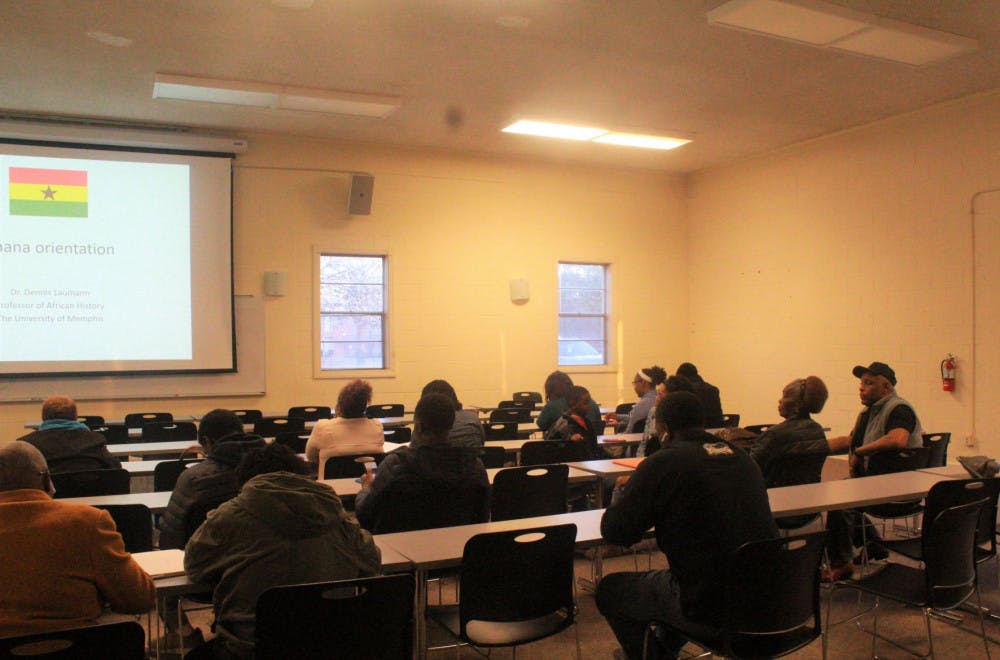For many teenagers, college is the first time they are on their own or could even be the first time they have left home. Depending on a teenager’s circumstances, college could be the furthest thing from their mind, but a local non-profit, One Step Initiative, is reinforcing the idea of secondary education by exposing inner city high school students to the world by taking them abroad for the first time.
One Step Initiative took their third group of high school students out of the country March 8. The group of 20 students embarked on a 10-day international awareness trip to Ghana, where they learned about agriculture, sustainability and the economy. The program focuses on underserved students to allow them the same opportunities as their peers. Brian Booker, founder of One Step Initiative, started the program after his experiences abroad.
“When I got older, I realized there was a lot that I had missed out on,” Booker said. “There is a dramatic increase in self-awareness and self-identification when you come back from studying abroad, and that helps them (students) develop a stronger sense of what is they want to do in life.”
The trips allow the students to experience a country’s culture and language as well as engage them in academic and leisure activities. Students in inner city high schools have a lack of exposure to the rest of the world, and that affects the way they navigate through the world, Booker said.
After studying abroad while an undergraduate student at the University of Memphis and visiting over 30 countries, Booker said he realized how those experiences helped him figure out who he was. Taking teenagers from impoverished areas of the city and granting them the same prospects as someone from a stable socioeconomic background helps to bridge the gap between the privileged and the non-privileged, he said.
Booker uses the trip as a tool to emphasize the importance of seeking higher education. Allowing the students to immerse themselves into a culture and learn firsthand gives the students something to look forward to writing about when filling out a college application, he said.
Showcasing the world to a child affects the way they view themselves in it, Booker said. Giving them the tools to succeed encourages them to come back home and change their surroundings.
“Seeing a student who is 10 years younger than me get their first passport and travel the world is fulling for all of us, I hope,” Booker said.
One Step Initiative covers all the expenses of the trip and is hands-on throughout the entire process. They take each student to get their passport as well as make sure they have been vaccinated and each student’s medical records are up to date.
Nykesha Cole, director of operations and partnership, said the organization handles the paperwork and communicates personally with each individual who will house and feed the students and chaperones on trips, including the current trip to Ghana.
“We deliver the paperwork to Ghanaian consulate ourselves because we want to have our hands on everything pertaining to the kids and the trip,” Cole said. “We want to make sure everything is right.”
The gap between low-income students and high-income students applying and getting accepted into college is slowly closing, according to a study by the National Center for Education Statistics. But the college enrollment rate for students from high-income families is 83 percent, compared to 67 percent for students from low-income families, according to the study.
Students from urban areas have a harder time applying to college due to a lack of resources. Economic trouble can discourage a student from applying and might force them to take time off before entering college.
One Step Initiative held their last meeting about their trip to Ghana giving parents and students a chance to ask any questions and express all concerns. The group of 20 left on March 8 for a 10 day trip.




